President Johnson did not want the war to broaden. He wanted the North Vietnamese to leave their brothers in the south alone.
~William Westmoreland
Recruited Allies
Many American GI’s who served in Vietnam had contact of one kind or another with troops from South Korea, commonly referred to as the “ROKs”. The Republic of Korea, a staunch ally of the U.S., sent some 335,000 troops to fight in South Vietnam from 1965 to 1973. Of those 335,000 troops some 5,500 were killed in action, while over 11,000 were wounded. Though the South Korean Army contributed most of those troops, members of South Korea’s Marines, Air Force and Navy also participated in the war.
As one of the participants of Lyndon B. Johnson’s “Many Flags” campaign, South Korea became the largest foreign presence in Vietnam, after the United States.
Controversies Arise
The South Korean government was not anxious to send troops to Vietnam but did so for economic reasons, and more importantly, because it feared the United States would transfer many of its own troops from South Korea to Vietnam, if they did not comply with Johnson’s request. Even so, South Korea was granted specific sums of money for each South Korean troop deployed to South Vietnam, along with regularly scheduled “general” payments to the South Korean government for the duration of the war. As part of the agreement, the U.S. also agreed to purchase many war materials from South Korea and contracted with South Koreans for many other war related services during the course of the war. These activities prompted many U.S. politicians and citizens to decry the actions as nothing more than the hiring of mercenaries to fight Johnson’s war, as well as shelling out poorly veiled bribes for foreign support.
Other problems arose with the South Vietnamese military who largely detested the Koreans, believing them to be interlopers and bullies.
South Korean Soldiers and Marines, known for their toughness were accused of various atrocities throughout the war, and to this day, the government of Vietnam is still attempting to press charges against the South Koreans for actions that occurred during their time there.
Admiration and Respect, from the U.S. Military
Despite the controversies surrounding their participation in the war, the U.S. military held the South Koreans in high regard and U.S. GI’s who served with the ROK’s (me included) hold many favorable memories of them.
The two ROK army divisions that served in Vietnam were the “White Horse Division” and the “Capitol Division”, more commonly known as the “Tiger Division”. 
My involvement with the Koreans was with the “Tiger Division” which had two camps just outside the Phu Cat Airbase perimeter.
At Phu Cat, the “Tigers” conducted both passive operations, including defensive positions along our perimeter, as well as aggressive operations including search and destroy patrols in the general area surrounding the Phu Cat Airbase.
As more and more elements of the 173rd Airborne were pulled back during President Nixon’s Vietnamization program, the Phu Cat Airbase assumed more and more responsibility for its own protection. Security police and augmantees (volunteers) patrolled the base perimeter 24 hours a day. The local Vietcong would often probe the perimeter, sending sappers in to inflict damage whenever they could. While Air Force base defenses performed the passive defense very well, they were not trained or equipped to go out on patrols, seeking out Vietcong and North Vietnamese soldiers. The ROKs, on the other hand, performed that task very well.
The ROKs and Me
I first became associated with the ROKs when I spent time in their main camp outside of our south perimeter learning the martial art of Tae Kwon Do. Larger and stronger than the Vietnamese, the ROKs were tough, disciplined and extremely dedicated in the application of their practice of karate. Watching them as they trained and sparred we became quite impressed with their physical prowess. Few Americans could match their abilities in hand to hand fighting.
I eventually earned a yellow belt in Tai Kwon Do, but never took it any farther; I was not what you would call a “natural” in that endeavor. Some of my peers became quite enthralled with the martial art, earning various degrees of black belts. They would spend their off duty hours with the Koreans, training and sparring. Our non-com at the time would often chide us over our involvement in the activity. He called us “chimbee artists” after the sound we made when we executed our moves.
When I had about three months left of my tour of duty in Vietnam, I began spending much of my time in the Korean bunker just outside of our Western perimeter. My two best friends whose tours were over had already left Vietnam. With Nixon’s Vietnamization program in full swing, my previous duty station required a skeleton crew only, leaving me a ship without a navy, so to speak. Recruited for other duty, I spent about one month loading and unloading cargo on C-130 and C-47 aircraft. I flew all around the Central Highlands of Vietnam during that time. That was great duty for me; I especially enjoyed my one-week stay at Nha Trang, which had a beautiful beach for swimming and even surfing.
However when my flying days ended, I still had little to do and was pretty much in charge of my own activities. I took my R & R to Hong Kong (much enjoyed) but when I came back, I still had no workstation to report to on a regular basis so I started hanging with my old friends, the ROKs.
The ROKs on our Western perimeter maintained a small, less than platoon size bunker, and because of my earlier association with them, I now found myself charged with making sure they had everything they needed that our Airbase could provide. (They finally found something for me to do so I’d leave them alone) I felt this was worthy duty and I also enjoyed it.
Each morning I would walk over to the ROK compound just outside of our Western perimeter, and spend most of the day there. The ROK Lieutenant in charge would greet me on arrival after which we would discuss any number of topics. Protocol was important to the ROKs and it was necessary for me to spend whatever time the Lieutenant required, discussing whatever subject he liked. As a recent convert to Christianity, the Lieutenant liked to discuss religion. Being a Luke-warm disciple of religion, my participation in the discussion was based primarily on manners and military protocol.
The rest of my day at the Korean compound would be spent in any number of ways at my new duty station. One of the Korean soldiers and I became close friends over time and we were inseparable during my time there. Kim Jun-Ki and I fished and swam in the little river that ran by their compound, and shared family histories as well. He had a sister named Jun-Ja and he hoped to engineer a marriage between us. Another time, another place perhaps, but I wasn’t ready for a marriage based on correspondence, so I held him off on that one. Kim and I kept in contact for several years after we both left Vietnam and after all these years I still think of him often, hoping he prospered and did well in life.
For reasons of self-preservation, the local VC usually spared the ROK compound from the mortar and rocket attacks the airbase was subjected to. During my stay with the Koreans, I recall only one or two mortar attacks and the mortars that fell were well short of our little bunker. It was my opinion that the mortars were intended for the airbase and just fell short.
The ROKs went out on patrol about three or four times a week. They would usually patrol the mountains to the west of our base, known as the Phu Cats. The lieutenant often teased me about going out on patrol with them…at least I thought he was teasing until the day he told me it was time for me to go. Not wanting to lose face, I grabbed my gear and went out on the patrol. My first patrol was fearful, though fortunately for me it was not one of the long-range patrols up in the Phu Cats, but rather just a short two-hour jaunt outside the airbase perimeter. On this particular mission, our patrol encountered no enemy and my short career as a “grunt” during that time left me unharmed. (God bless the grunts!)
Before I left Vietnam, my ROK friends held a celebration on my behalf, including fresh fish from the river, Korean OB 10 beer, and, of course, plenty of kimchee. To this day, I fondly remember all of my days and nights with my Korean friends, I still have a fondness for Kimchee have converted some family members and friends and bring some home now and then.
천만에요 (Welcome)
Please share your memories of our staunch allies from South Korea
You are welcome to share Joe’s blogs on Facebook or any other media, in their entirety with citation acknowledging Joe as the author. Copyright protected, all rights reserved © Joe Campolo Jr.
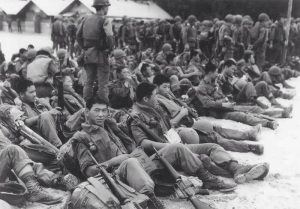
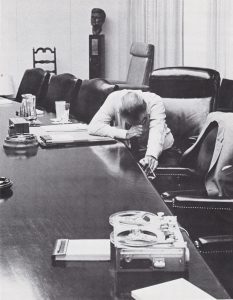
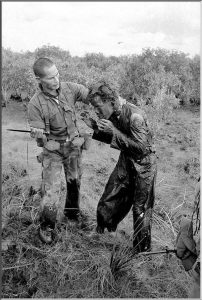
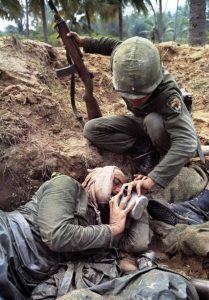
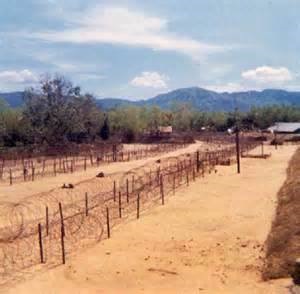
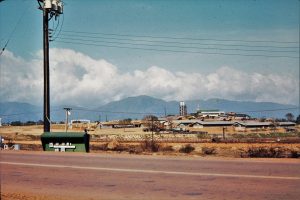
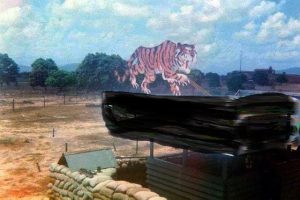
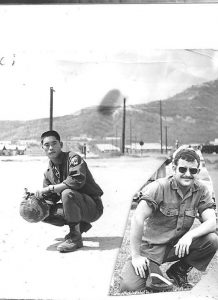
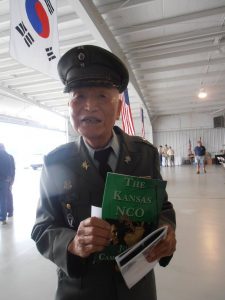
I served with the ROK in Korea in 67-68.
Great soldiers.
While in a field hospital, a North Korean soldier, was in a bed opposite from me guarded by two American MP’s. When he was released by the Americans to South Korea, they hung him soon afterwards. Tough cookies.
Google “The Second Korean War.”
Yes, they were indeed.
I was with the Roks from 1968/1969. I was a radio operator with the 54th signal. Seen more then most. alive today because of them.
Yes…. I do believe I made it home do to my ROK Brothers I was attached to!
I was stationed at the 1st Regiment ROK Cap Tiger Division outside the front gate of Phu Cat Air Base.
Ground Radio Operator USAF!
joe I was an augmentee for 30 days in feb mar 1969 and got to meet many Koreans too. one incident I bought an electric fan for a rok at the bx when I gave him the fan he reimbursed me and next stop arrested by security police spent a couple hours in custody until the capt bailed me out, I would have done it again really appreciated them as I was at phu cat may 1968 to oct 1969 after my extended tour cut a little short due to I went home when my dad died 2 weeks before my 21st birthday
Wow, that’s the Nam, for sure Dan. Glad you came out OK, good hearing from you. Stay in touch.
I supplied the White Horse with batteries and inner tubes from my outside storage yard at Cam Rahn Bay—no paperwork.
They supplied me with Korean beer—impossible to dent those cans.
Outstanding convoy escort troops to visit Tiger Division friends outside DaLat and Ban Me Thout. In ambushes, ROKs stopped, ran out, came back with ears and
fingers.
Thanks for sharing Richard, the ROKs were a good bunch.
I never heard of the ROK until I took Tae-Kwon-Do. I found out that the founder (Master Bu Kwang Park) was a Vietnam-era ROK soldier trained directly by General Choi, and he visited each school. I decided to “spar” him as a third degree, and he literally paralyzed my entire body and caused me to slump to the floor in a single punch. I’ve been gored by a 2140 lb hereford bull’s horn before, and it didn’t even feel a tenth as bad as getting punched by him.
Yes, the ROK’s took their Tae-Kwon-Do seriously! Tough soldiers.
I was a ground radio operator detached to 9th ROK, The White Horse Division, 1970-1971 in support of Cutie FACs. Whether at Division or one of the regiments, you could see the parade ground filled each morning with Korean soldiers practicing exercising with their Tae-Kuon-do with all the oomphs, ahs, and grunts that goes with it. I may make light of it, but not of them. I am proud and thankful for my opportunity to serve with great soldiers – and, I thank them for keeping my butt safe whenever I was with them. I was invited to take Tae-Kwon-Do, but stupidly (in handsight) I chose women, booze, and partying for my spare time…
Good choice Kenn! 🙂
Kenn,
I’m not sure of his time in country but by any chance do you recall a FAC named Jim Tillotson? His call sign was Cutie 1-5.
Regards,
Kimber Heddens
It would only be fair to make an addendum to this: only God is the Master.
I did later discover that supreme commander Park Bu Kwang had been given authority over all of Tae-Kwon-Do directly by General Choi, who submitted it all to him just before the coup. He won the 1965 and 1967 Military Tournament held by the President of South Korea at that time (he took a break from the 1966 one as one of his friends then won that year in his absence), and in that first year, he had _no_ rank; no belt. he later founded the Royal Order of Korea, the seldom spoken-of ROK Special Forces that the dictator of South Korea tried to erase from history to replace it with sport-kwon-do in the early 70’s prior to the Seoul Games in 1988.
Could you imagine defeating all the best of the ROK soldiers who had already seen at least a year of combat in the rat-holes of Vietnam as a youth with no formal background in martial arts at all anywhere in the world?
A current example of David vs. Goliath, and he is alive and still training far more than he did back then, having eighty one years. We sparred many times; that punch which nearly killed me occurred during one of our earlier sessions; it was not until the latter half of 2018 that I finally defeated him, and doing so was not easy. At that time, he was sparring eight hours nonstop daily versus many special forces ROK soldiers he trained for decades, allowing them to “tag out” to force him to fight relatively uninjured and energetic opponents all day by himself, and thought nothing of it.
That said, here is him in the 1970’s:
https://www.youtube.com/watch?v=A_hohhdDH-0&list=PLmfWKKlWSles65u_m_A4xWV3-v0hqIC40&index=14
and him a few years ago:
https://www.youtube.com/watch?v=HooE_xcH-uE
Enjoy the History! South Korea and the Olympics sure don’t want you to.
Hi Joe, my dad Hyun Ku Yun went to Vietnam to teach Tae Kwon Do with the Tiger Division. He was a grandmaster and said he was stationed in Saigon and Qui Nuon. Did you know him? If so, do you have any memories of him that you could share with me?
Lisa, I was never in or near Saigon, but I was near Qui Nhon and traveled there as part of my duty throughout my year of service in Vietnam. I am sorry to say I did not know your father, but I did meet many South Korean soldiers and they were all very good men, as I am sure your Dad was.
If you have photos of him during his time of service in Vietnam, I could post them in some Vietnam Veteran Facebook groups with an inquiry. Contact me through the contact page of this website, if you like.
Hi Joe, thank you for your response. Unfortunately, we don’t have any photos from Vietnam because they were destroyed in a house fire in Korea. I am looking forward to reading your book.
Good luck going forward, Lisa. I hope you enjoy my books.
I believe he was there in 68/69 correct
Love the article Joe. I too went to the ROK camp to learn Tai Kwon Do when there with you although I wasn’t vey good. They kicked my butt. LOL
Kicked mine to Dave, I tried to hide!
Hi Joe!
My dad was stationed with the Tiger Division (ROK) outside Phu Cat in 1968 with the US Army. When were you there? Id love to talk further and see if you knew him or have a way of finding others that may have known him during that time period. Thx!
Hi Amy,
Good to hear from you, nice hearing about your dad. I was there Jan 1970 – Jan 1971 so I probably missed your dad.
If you are on Facebook, join the Phu Cat group:
https://www.facebook.com/groups/PhuCatAlumni
You may find some folks who knew your dad.
Let me know how you do.
Joe
I was a squadleader with the ROK’s was your dad a radio operator. He might have been in my squad
I made an ambulance run to that ROK position late one night. A SP jeep led the way, it was at least a mile from our wire. The ROK’s were all hunkered down in their fighting positions because of sniper fire. I followed my escort upwards through a trench to a small dugout bunker, barely lit with a little candle. The ROK officer that had come to the Dispensary looking for help, had described through gestures what I thought would be a gunshot wound to the head. Instead my patient had only suffered a small forehead laceration when he had dove for cover. Easily patched up, I then ran a gauntlet of appreciative ROK’s, grateful we had made the trip. My driver, waiting anxiously for my return, informed me our escort had left. Unarmed, with snipers reported in the area, we cautiously but quickly made our way back to the safety of our perimeter. Medic, Phu Cat AB, 70-71′
Great story, thanks for sharing Stephen.
I was never in Viet Nam, but I was an Air Force medic stationed at Clark Air Base in the Philippines from Jan 69 til June 70. Many of the S Korean White Horse and Tiger wounded came through our hospital because there was a problem sending them to Japan since the Japanese had a previous history of invading Korea and treating the Koreans badly from before WWII and during it too. We had so many S Korean patients who were tough as nails even though most of them had lost one or multiple limbs, were paralyzed or had head wounds or burns. Really bad wounds. I distinctly remember two names, Lee Suk Hang and Lee Jin Yung. The first had been shot in the abdomen and spent 6 months with us because he kept getting infections. We thought he would die but he pulled through. He spoke English and we got to be friendly. The second had his spine severed from a bullet and was on a circle-electric bed, paralyzed from the waist down. He was in very bad shape, but we kept him alive and and eventually was evaced back to Korea. There were many, many other S Korean battle casualties that came through Clark, but I always remembered these two because they were with us so long. I still wish I knew what happened to them. I hope they were able to get through life despite their injuries. God bless all the S Koreans who gave as much as the US soldiers did.
Very interesting, I had no idea about the “Japan issue”. Thanks for sharing Tim.
I was assigned to the gun platoon of 129th AHC (slicks were callsign Bulldogs and guns callsign Cobras [Bravo and later, Charlie and Mike Model UH-1 gunships]) at Lane AHP, south of Phu Cat and NW of Qui Nhon. Lane shared a perimeter wire with the Tiger Division HQ while the 129th’s mission was Capital ROK/Tiger Division support. Our AHC did stellar work with the ROK’s who were some of the finest infantry in VietNam. regards, (Cobra) Alemaster
Thanks for sharing with us Alemaster, those ROK’s were damn fine troops. And you guys did a pretty good job yourselves.
In 1967 we did convoys daily between Qui Nhon and Pleiku with tractors pulling tankers full of 5,000 gals. of jet fuel. About a 200 mile round trip. We would pass a lot of infantry humping along the roads and they use to refer to us as Zippos Trucks, like the Zippos Lighters and it stuck with most of us. I broke down and there was some mix-up and no one came back for me and had to spend the night somewhere around the An-Khe Pass just me. I can’t recall what happen that night but the next morning I woke up in a Tiger Division Soilders Camp with just pants on. I was beat up badly. I was there for a week or so before my company came and got me. My M14 and everything else were gone. The only thing I learned that Korean Soilders found me in the bush far off the road and the only thing I had on was pants. Truck and tanker were gone. There is more to the story but to long. They apparently saved me. There are so many holes I just can’t remember them. Here is the outrages thing about this, there is no record that this happen to me. WHY no record? I think I know why no record!
Wow, that’s an incredible story Bill. I guess just be glad the ROK’s found you.
Joe VA sent me to a VA head doctor and he has help me pull somethings out I didn’t even know was there. It appears that the VC took me and took me into the bush but apparently didn’t kill me because they were scared off by the Korean Soilders. Apparently they had enough time to take everything from me but my pants. That’s all I have right now to try and explain what happen to me that night. Yes I am very glad they saved my butt.
Joe, thanks for your efforts in preserving this rare record.
I never expected any sign of recognition.
Someday I hope to visit MacArthur Park in Seoul, to pay homage to the ROK there, and attest to our brotherhood.
Your welcome, I hope the ROK effort will always be remembered.
Are there any resources about The experience of black soldiers in the Vietnam war who were posted to Korea? Is there a sign visors group?
Any info about these soldiers specially suffering from the effects would be appreciated.
Thanks,
Jill
Jill, I’m not sure I understand your inquiry. I am guessing you are referring to black soldiers posted to Korea DURING the Vietnam War. And you are asking about a survivor’s group. I was stationed in Vietnam during the Vietnam War, so I’m not totally familiar with anything that went on in Korea during that time.
Suggest you search for some Korean War Facebook groups, for that information. You may also contact your local American Legion or VFW with your inquiry.
I was with the ROK Marine Corps, Blue Dragon Brigade, Ranger Co. Hoi An, Vietnam, from May 1968 to April 1970. I was with Sub Unit,1st. ANGLICO Marine Corp. two man team, Running air support, medically, evacuation, and resupply. We were at blocking force for the marines operating in the Dodge city area, south of GaNoi Island. I just began writing my memoirs last year. I have two years of battle stories from all of the operations that I was on. One being “Operation Pipestone Canyon.” And another, the last beach landing in Vietnam “Operation Defiant Stand” on Barrier Island. One thing that sticks in my memory was riding a ROK convoy into DaNang, watching the top of Freedom Hill ammo, dump, blowing off as a magazine of 2,000 pound bombs exploded. Then the thousands of Vietnamese refugees from “Dog Patch” came out like a wall of human flesh and nothing could move. To this day I avoid crowds!
Jill, how can I help you? I am not black but served with black soldiers in Korea during Vietnam War.
Here is a ROK Army story from a different angle…the Korea DMZ. I was in a towed 105mm howitzer battalion that deployed at the DMZ in 1973. The Tiger and White Horse Divisions returned to Korea from Vietnam in March 1973, and gradually their sub-units re-deployed along the DMZ, next to my unit which cooperated with them. I was a medical corpsman and accompanied the ROKs on some of their “hunter-killer” patrols within the DMZ, observing their tactics while searching for North Korean infiltrators…QUITE IMPRESSIVE!
Yes, the ROKS were indeed impressive.
Hi Joe,
Many of us were stationed at Phu Cat Air Base during the war and were very appreciative of all the ROKS did to keep our base secure. Do you know if there is a FB page or site where we can just tell them thanks for all they did. I have found nothing over the years and have never had the pleasure to meet a former soldier.
James, I know of no such page or site, if I should find one I will post it.
My last tour in the army I ran into an Army doctor and he told me about his duty in Nam. He told me he assigned to a ROK unit. I mentioned he must of been safe being assigned to the ROK Army and he said yes…I was very safe.
I did three tours in ROK—two long, one short (5yrs total) became proficient in Tae Keon Do & Tang So Do. Been married to a Korean for 42yrs. One thing that was interesting was all Korean males did time in the military and exemptions were rare.
Interesting, thanks for sharing Jet.
Enjoyed reading the stories …. I was at Phu Tai with the 173rd … It was a very small compound and we shared perimeter wire with both an Engineer and Transport company … there was a ROK base to the north-east of us (I think, no one remembers our base or the exact location ).. Anyway I was on guard duty on a tower one night – 1971 I believe when I saw the ROK’s get hit with Mortars and small arms fire … front row seat, I can never find any info or reports about that night except for the fact that I met a TOC specialist stationed on our base (met him thru facebook)… chatting on the phone a month ago… he says “were you there the night the ROK’s got attacked” – confirmation at last!! 🙂 I’m still searching for fellow 173rd’s who were there at that time. Does Anyone know where that ROK base might have been or the name of it? Phu Cat would have been too far away for me to have seen it…I’m on facebook … Take Care.
The camp was called thunderbolt. I was there in 68/69. I was a radio operator for them.
I think it was the ROK Tiger base outside Qui Nhon. I was stationed with 84th Engineers C company beside ROK base. Drove fuel truck to construction sites and gave them rides back to base. Nice guys but would not want to get on the wrong side of them according to the reminders they would leave for VC, body prop up with with thinking part beside them next to road. What ever you hear about them being dedicated, yes it’s true!
My father US Army Retired Colonel Glenn Beil recently passed away. He served in Vietnam from Nov 68- Oct 69 as a Major and always spoke highly of serving alongside the Tiger Division soldiers. His main locations were at Qui Nhon and Nha Trang. If anyone has any memories please comment. I was also curious if the Tiger Division had a motto?
Sorry for your loss Brian. I am not aware of any ROK motto, the unit I was involved with being very small, perhaps other readers will comment on it.
I was a young Marine in 7th Comm Bn, 1st Marine Division. and a part of a three man Radio Relay Team from Thanksgiving Day 1966 till 12 March 1967 assigned to maintain radio telephone communications at the 2nd ROK Brigade north of Quang Ngai. I am one of the most appreciative of those of us who made it out of that place. I was honored to serve with some of the finest fighters ever sent into the teeth of the enemy. The ROKs taught me a lot of life lessons when I was 19 years old. As an elderly person I’ve learn you can’t really choose who will be your friends… they just are. I count those men, both alive and past, as my deep, deep friends.
I wish I knew of any ROK Tigers that are now living in this country. I would love to meet them. I was at camp Thunderbolt
Truly enjoyed this life-story of yours, Joe. Flash-back to 1968 at Phu Bai – I befriended a one Captain Lee, ROK, while stationed there. I happened to stop by his hootch one day and saw him playing, what I soon found it, a game called “Go” (Baduk in Korean). Sort of a chess/strategy game. Before I knew it, I was invited in to watch. This soon turned out to be a learning experience that lasted almost until I left Phu Bai in ’69. In turn, I would teach him various phrases of English and he in Korean. It wasn’t too long after this first encounter when he flat out asked me to join him in Tae Kwon Do (TKD) practice at the MACV compound the next day. I showed up as soon as my duty was finished for the day. The small work out area (Dojang) was a corner of the compound, rock solid hard concrete floors, a hanging duffle bag filled with sand for punching/kicking practice….and me…without any uniform (dobak) to wear. Some of the students soon found me one to wear that was about 4 sizes too small. However, my skinny 127 lb. frame took to it just fine. I should go on to say that I was the ONLY non-Asian student in class. All young (weren’t we all?) Vietnamese ARVN, Captain Lee and another Vietnamese officer (Captain) of which I cannot remember his name. Training was tough as nails, no talking back of goofing off in class. Hard core training, being thrown to the floor many times over, struck everywhere with no protective gear, bruises all over me…..but I loved every moment of training. I, too, was razzed by my company “Commander” for training with them. That didn’t stop me, of course. I just ignored all the BS from him (and others).
My time to leave Phu Bai came around, I said my goodbyes, but sadly Captain Lee’s contact information was lost by me over the years. All pictures, unfortunately, were destroyed in a basement flood many years ago. But my love of TKD, along with TSD and other Arts never waned. I continued my study once back in the states. Taiji (Tai Chi is my current study and has been so for over 40 years now.)
That’s an incredible experience, thanks for sharing Steve!
Joe I was stationed with the 48th AHC in support of the 9 ROK White Horse Division in 1968 – 1970 located in Ninh Hoa.
You must have some interesting stories Fred.
I was a loadmaster on a C-130. We landed (I believe at Phu Cat but not sure) when we noticed a column of vehicles headed towards us. They were ROK soldiers. They dismounted and in perfect precesion lined up in formation. An officer got out of his jeep and issued a command. A ROK soldier stepped forward, the officer drew his weapon and shot him in the head. They all got back into their vehicles and as quickly as they had arrived and with perfect precision, they diasappered. We learned latter that the ROK soldier had raped a vienamese girl.
Mr Campolo, regarding your article on the ROK,troops, i was in an army transportation company on Pier# 3 at the port of Pusan(01/1969 – 02/1970) and used to watch our American troop ships ferry all these ROKs coming and going to Vietnam. The returning troops would be met with official receptions, bands,flowers,etc., something never done for our army. We troops in the Pusan base command were allowed to take the troop ships on pass to Sasebo, Japan where they’d resupply and come back in 3 days to take a new load of ROKs to Vietnam.
Interesting, thanks for sharing your experience.
We were at the 504th Signal Company In Phu Tai Vietnam and wore the Tiger Black Panther patch on the left arm.The Korean base were responsible for our protection because we were located in their zone.There were about 30 of us total and had a Mars station at the corner of our base,also beside us was a ole empty French base along with a few French graves.We were mortared one night they were trying to destroy the Mars site.The Koreans responded quickly and searched the hills behind our base.The Koreans also would visit us and would try to teach us martial arts at times.I have tried to find the patch with no luck.On weekends the Mars station would be open to the troops north of us,they were mostly combat ones that would sleep in the old french base until they could get to use the Mars phone patch.I would operate the patch on my spare time.
Thank you for this page about the ROK. You may not be aware of the award of the Army Legion of Merit Medal to USA PFC Edward Minnock, 404th Radio Research Detachment, 313th USASA Bn, 173rd Airborne Brigade, US Army, Tet Offensive 1968.Minnock essentially took control of a ROK Regiment at Tua Hoa, SVN during TET. Some of that story is told below and generally accurate. See the URL at end of my comment. However, if you ask the Army Intelligence School at Fort Huachuca for a copy of the entire story about PFC Minnock and the award of his LOM I think you will find your effort worth it. That story is featured in their museum. Ed went on to earn a PhD and become an instructor at Penn State University. He died a few years ago at his desk at another university. His story is amazing, I was there, and maintained a friendship until his death a few years ago. I awarded Minnock the ACM initially — the limit of my authority, the Commanding General 173rd subsequently awarded the LOM.
https://www.reddit.com/r/army/comments/rjwlmq/19yearold_pfc_edward_minnock_jr_was_a_signals/
Thank you for sharing Don. Very interesting story. Ed was a stalwart soldier, indeed. His actions pulled their sticks out of the fire, for sure.
Hello. I am a German history student, currently learning and putting together a presention about ROKs in Vietnam. During my research, I read multiple times that many Americans wouldn’t know the real motive behind the South Korean participation in the war. (Source: A letter from the President of the Korean Affairs Institute regarding the fight in Vietnam and finding a solution for the divided Korea.
URL: https://digitalarchive.wilsoncenter.org/document/letter-korean-affairs-institute-president-yongjeung-kim-un-secretary-general-u-thant-0)
Can you match that with your experience? Have you ever brought up the topic with people in America outside the military and if yes, what did they think about South Korean soldiers fighting in Vietnam?
Best regards.
The link when opened does not display the letter do to some missing app.
However I addressed this in another blog article “LBJ Sells His War”.
Thank you very much for your answer.
I was the NCOIC at the ROK Tiger Div, Cav Regiment, Hwy 19, 9 – 10 K sw Phu Cat AB. Our unit was a USAF TACP providing control and deployment of all tactical and support aircraft from USAF and ARMY as needed to fight charlie. A lot was needed. 11 Major combat operations and a TeT participant. Ming HO.
Dec 1967 – Dec 1968. A right shoulder ROK Tiger Div patch wearer.
https://www.afdasf.org/dasf/m_humphrey/gp03/img152%20%20mike%20h.jpg
Peace Brother
I’m a retired NYPD officer, and I just ran into a ROK veteran,in nyc. I saw he was wearing a Vietnam war vet bb cap. He had a few pins on it.
One was 2nd marine division. He was having coffee with his friend. When he left ,I told him
I know of the ROK exploits in Nam. He smiled. Said he was there in 65. The vc were terrified of the ROK troops. True Heros.